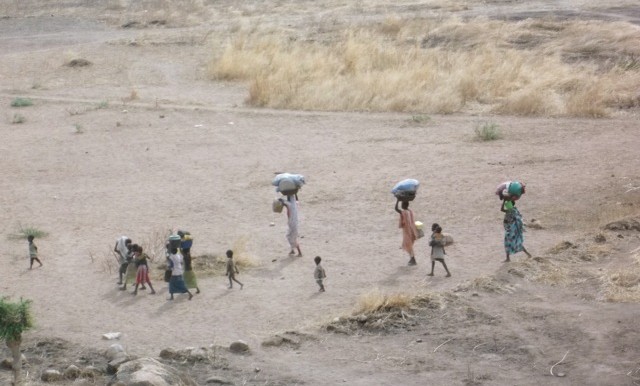Khartoum reluctant to establish camps in South Kordofan, Blue Nile

The Sudanese government announced that it conducted a comprehensive field study of South Kordofan, revealing 50,000 citizens requiring emergency humanitarian aid.
Government figures collected in July showed 150,000 requiring aid.
The Commissioner of Humanitarian Aid, Suleiman Abdul Rahman said that more than 100,000 displaced people have since returned to their villages as the humanitarian situation is 'within normal levels'.
However international aid organisations expressed concern about the continuing conflict in South Kordofan and Blue Nile.
An official in the UN Office for the Coordination of Humanitarian Affairs in Khartoum, said the continuation of the conflict is increasing suffering amongst civilians across the states, whether in areas controlled by the Sudanese governement or the rebel Sudan People's Liberation Movement North (SPLM-N).
In Khartoum, the government demanded that the international community pressures the rebel SPLM-N in the areas they control, to sign a ceasefire agreement allowing aid access for civilians.
On Wednesday, the government denied it is blocking international organisations from entering South Kordofan and Blue Nile to provide humanitarian assistance.
Khartoum said it is considering a joint initiative of the UN, African Union and Arab League to provide aid to the areas.
The Minister of Social Welfare Amira El Fadil also denied the claim that international organisations are not allowed to enter the states.
She told the state's news agency SUNA that the government has authorised permission for employees of some organisations since January 22, but the UN mission is yet to complete its authorisation procedures.
The Minister called for all UN agencies and international organisations to use results of the survey as a reference, when planning aid operations.
El Fadil also confirmed the government's reservations of establishing camps in the conflict areas, whether set up by international bodies, or in rebel controlled areas.